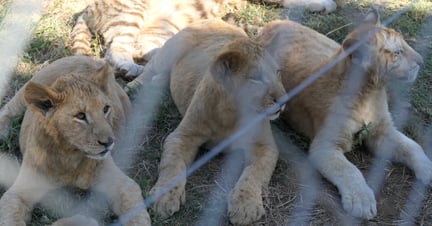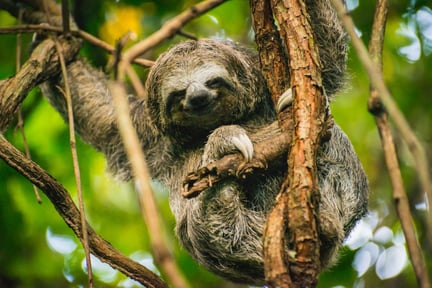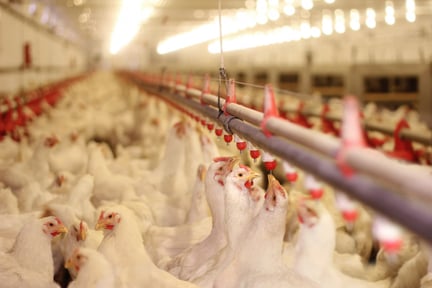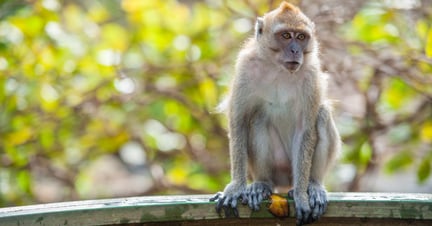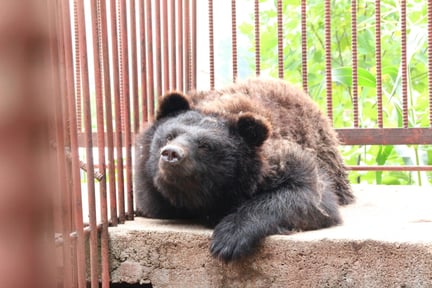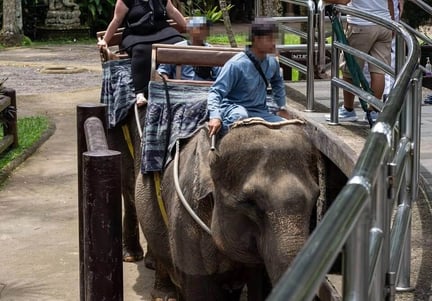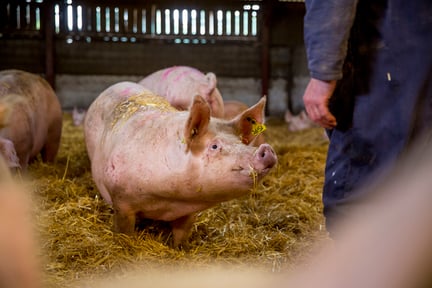
A landmark conviction in Kenya calls for stronger protection for wildlife
News
Kenyan court ruling highlights growing threat to lesser-known species and calls for stronger wildlife laws.
We welcome a landmark court ruling in Kenya where four individuals were convicted of illegally trafficking over 5,000 giant African harvester ants (Messor cephalotes).
The traffickers - two Belgian nationals, one Vietnamese national, and one Kenyan citizen - were each fined Ksh 1 million (approximately USD $7,700) or face 12 months in custody.
The ants were intercepted before they could be smuggled to lucrative exotic pet markets in Europe and Asia, where individual colonies are believed to fetch up to USD $1 million.
The seizure by the Kenya Wildlife Service (KWS) represents a significant success in combating biopiracy and protecting lesser-known but ecologically important species.
A shift in trafficking trends
The traffickers concealed the ants in modified test tubes and syringes lined with cotton wool - a tactic designed to allow the insects to survive long-haul transport and evade detection at airports.
The sophistication of the smuggling method points to a well-organised trafficking network targeting non-traditional species.
This case reflects a growing shift in wildlife trafficking trends, where syndicates are moving beyond iconic species like elephants and rhinos to target smaller, lesser-known animals.
Call for stronger wildlife protection laws
World Animal Protection Africa is urging the Kenyan government to use this case as a catalyst for strengthening wildlife protection laws.
Kenya is currently reviewing its Wildlife Conservation and Management Act - a vital opportunity to ensure the law reflects the evolving nature of wildlife crime.
Edith Kabesiime, Wildlife Campaign Manager at World Animal Protection Africa:
We welcome this timely judgment, which rightly recognises that wildlife crime does not end with iconic species.
"The trafficking of lesser-known species like the giant African harvester ant undermines biodiversity, threatens ecosystems, and robs local communities of their natural heritage."
Addressing the full spectrum of wildlife crime
World Animal Protection commends the work of the Kenya Wildlife Service and local law enforcement in bringing this case to justice.
However, unless penalties keep pace with the scale and profitability of the crime, traffickers will continue to exploit legal loopholes.
"This ruling is coming at a time when Kenya is in the process of reviewing her Wildlife Conservation and Management Act. As wildlife crime syndicates diversify their targets, our legal frameworks and penalties must evolve in tandem." Kabesiime added.
"We urge policymakers to increase penalties and invest in enforcement capabilities to deliver real deterrence."
Protecting all animals from exploitation
This case highlights the urgent need to broaden the scope of wildlife protection beyond high-profile species.
Lesser-known animals like the giant African harvester ant play vital roles in ecosystems, yet they are often overlooked in conservation and legal frameworks.
We continue to work with governments and communities across the globe to prevent wildlife exploitation and strengthen legal protections for all animals.
Related content
What is wildlife farming?
Ending commercial exploitation
Wildlife farming is the commercial breeding and raising of wild animals. Learn how you can take action to prevent their exploitation.
Animal Sentience
At World Animal Protection sentience is at the heart of everything we do, click to find out more.
No Future for Factory farming
Food systems
Factory farming is a global problem, that requires a global solution. A moratorium on factory farms is urgently needed to safeguard animals, our climate, health and the environment.
